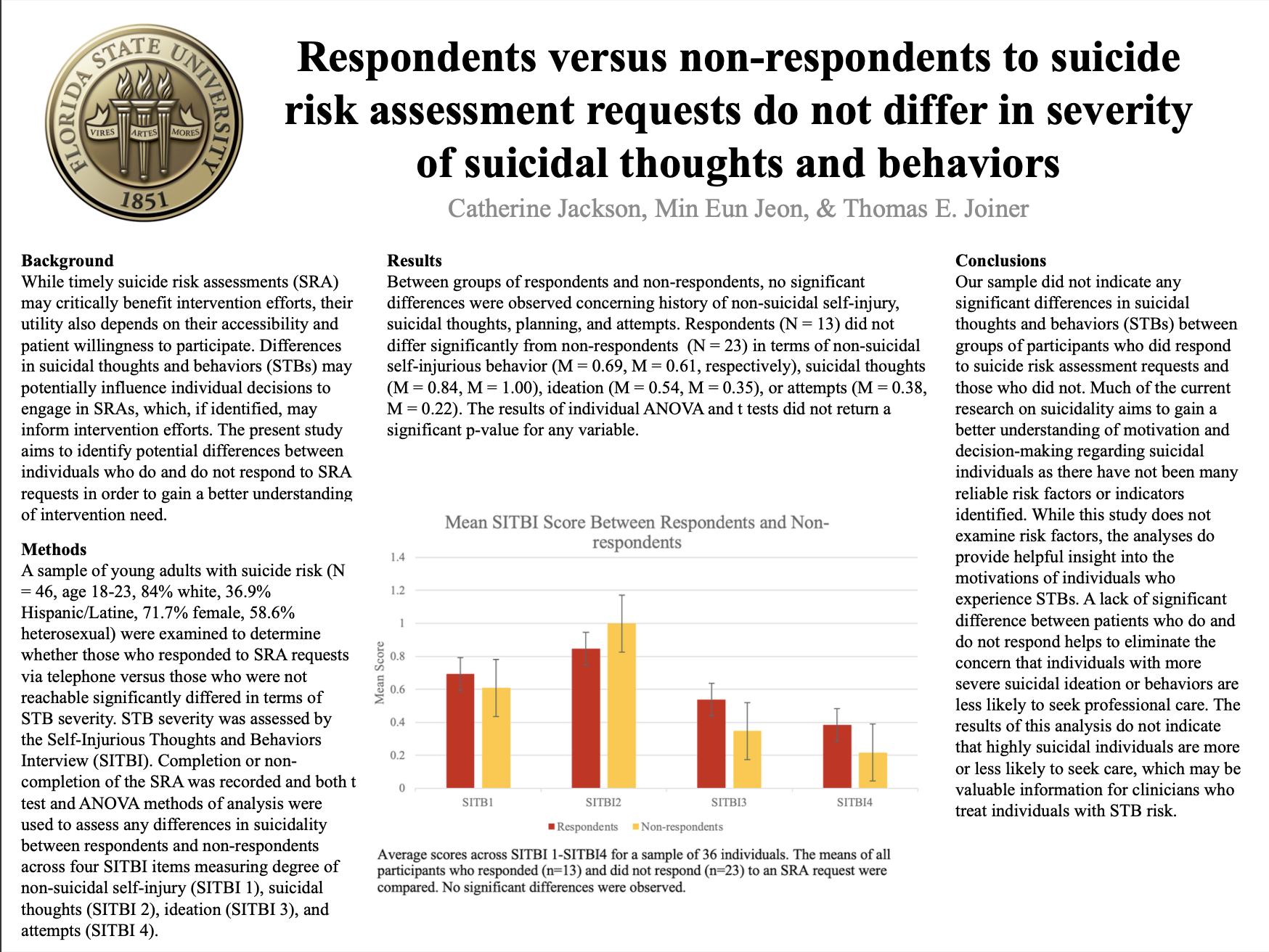Research Symposium
23rd annual Undergraduate Research Symposium, April 6, 2023
Catherine Jackson Poster Session 4: 4:00 pm - 5:00 pm/ Poster #79

BIO
Catherine Jackson is a senior Cell/Molecular Neuroscience student in the Joiner Lab at FSU. Her research interests include suicidality risk factors and indicators as well as the patient experience for individuals who suffer from suicidal thoughts and behaviors.
Respondents versus non-respondents to suicide risk assessment requests do not differ in severity of suicidal thoughts and behaviors
Authors: Catherine Jackson, Min Eun JeonStudent Major: Cell and Molecular Neuroscience
Mentor: Min Eun Jeon
Mentor's Department: Psychology Mentor's College: Psychology Co-Presenters:
Abstract
While timely suicide risk assessments (SRA) may critically benefit intervention efforts, their utility also depends on their accessibility and patient willingness to participate. Differences in suicidal thoughts and behaviors (STBs) may potentially influence individual decisions to engage in SRAs, which, if identified, may inform intervention efforts. Thus, the current study examined a sample of young adults with suicide risk (N = 46, age 18-23, 84% white, 36.9% Hispanic/Latine, 71.7% female, 58.6% heterosexual) to determine whether those who responded to SRA requests via telephone versus those who were not reachable significantly differed in terms of STB severity. STB severity was assessed by the Self-Injurious Thoughts and Behaviors Interview (SITBI). Completion or non-completion of the SRA was recorded and both t test and ANOVA methods of analysis were used to assess any differences in suicidality between respondents and non-respondents. Individual ANOVAs and t tests were performed for four SITBI items (SITBI 1-4). Between groups of respondents and non-respondents, no significant differences were observed concerning history of non-suicidal self-injury, suicidal thoughts, planning, and attempts. A lack of significant difference between patients who do and do not respond to suicide risk assessment requests helps to eliminate the concern that individuals with more severe suicidal ideation or behaviors are less likely to seek professional care. The results of this analysis do not indicate that highly suicidal individuals are more or less likely to seek care, which may be valuable information for clinicians who treat individuals with STB risk.
Keywords: suicide, risk, intervention


